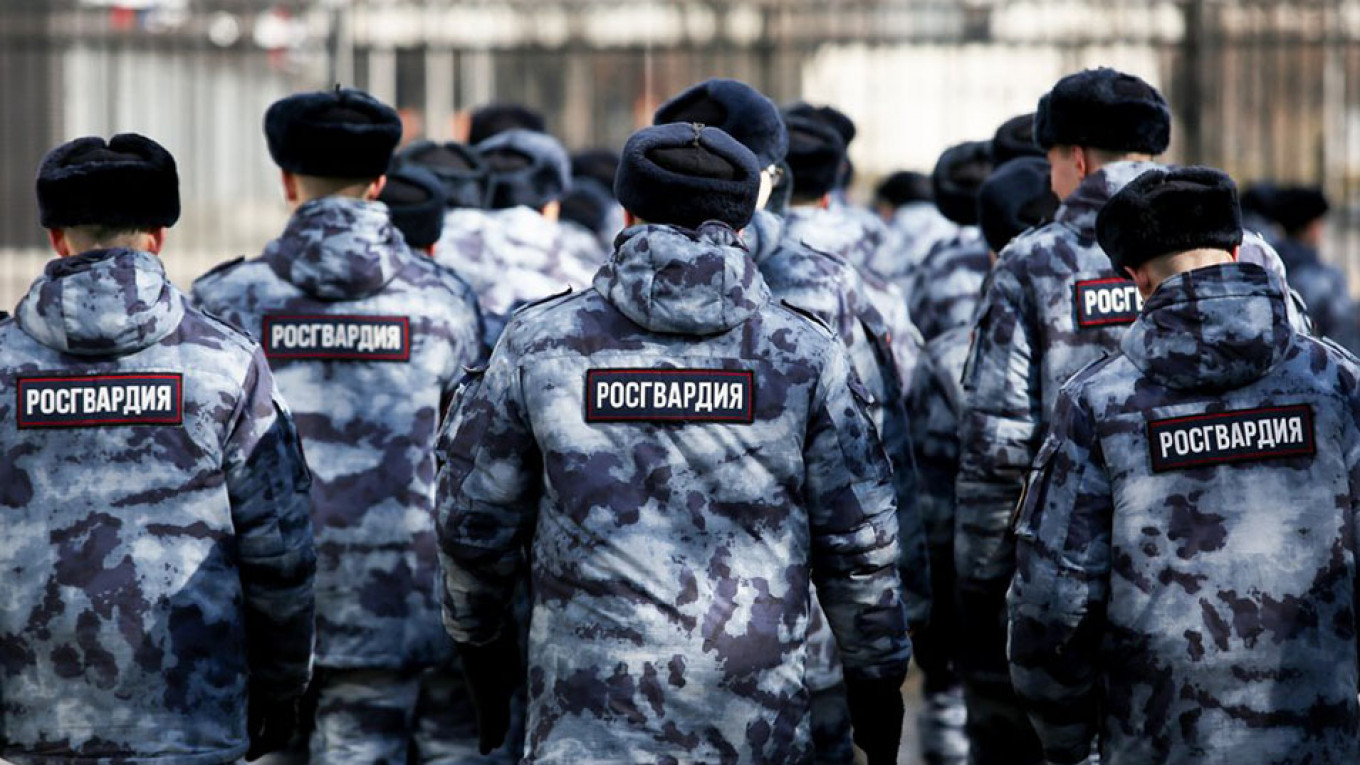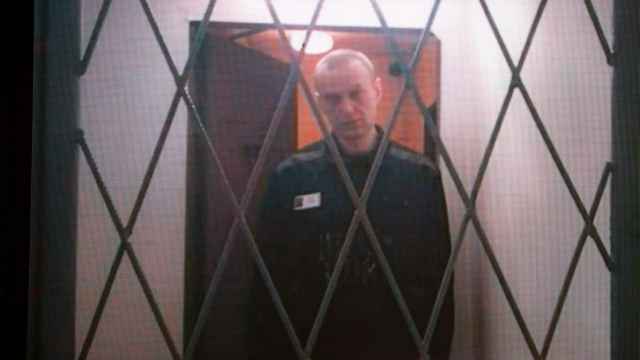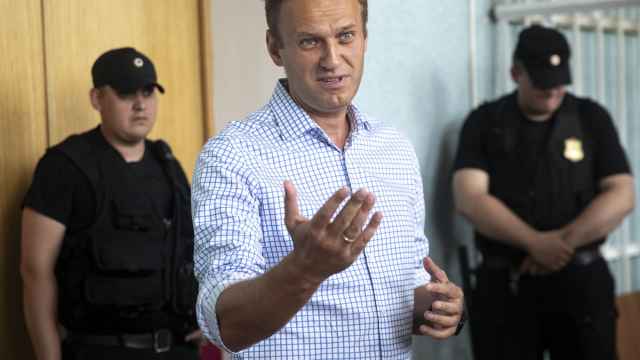A Russian court has handed week-long sentences to several supporters of jailed Kremlin critic Alexei Navalny after they traveled to his penal colony to demand he receives proper medical treatment.
Police on Tuesday detained nine Navalny supporters outside his prison in the town of Pokrov around 100 kilometers east of Moscow for violating public order.
The supporters had gathered outside the colony to demand access to Navalny, who is on hunger strike and demanding medical treatment for back pain and numbness in his legs and hands.
On Wednesday, lawyers from the Agora rights group representing them said four of the supporters had received stints in detention centers ranging from eight to nine days.
Three are members of the Alliance of Doctors medical trade union, which is critical of the government and headed by Navalny's personal doctor Anastasia Vasilyeva.
On Thursday, the Agora lawyers said a fourth supporter had received a 10-day sentence.
Navalny went on hunger strike last Wednesday to demand proper medical treatment for severe back pain and numbness in both legs, saying he had only been given painkillers.
He has since said he has also come down with a heavy cough and fever.
On Wednesday, his lawyer Olga Mikhailova said she and another member of Navalny's defense team had visited the opposition figure, who has been moved to the prison infirmary.
She said he is losing sensation in his hands and that an MRT scan had shown that he has two herniated discs in his back, as well as a bulging disc.
Also on Wednesday, several of Navalny's allies, including key aide Lyubov Sobol and his brother Oleg, saw their house arrests relaxed.
White House concern
The activists have been under house arrest since late January charged with violating anti-Covid measures by attending a Moscow protest in support of Navalny.
A Moscow court said they now face a daily curfew from 8:00 pm until 6:00 am, are barred from communicating with each other and cannot use the internet or phones except in the event of an emergency.
Navalny, 44, was arrested in January after returning from Germany where he was recovering from a nerve agent poisoning he blames on the Kremlin.
He was sentenced the following month to two-and-a-half years in a penal colony for breaching the parole terms of an earlier fraud sentence.
Washington and Brussels have called for Navalny's immediate release and imposed sanctions on Moscow over the poisoning.
White House Press Secretary Jen Psaki said Wednesday that President Joe Biden's administration was "disturbed by reports" of Navalny's worsening health.
A Message from The Moscow Times:
Dear readers,
We are facing unprecedented challenges. Russia's Prosecutor General's Office has designated The Moscow Times as an "undesirable" organization, criminalizing our work and putting our staff at risk of prosecution. This follows our earlier unjust labeling as a "foreign agent."
These actions are direct attempts to silence independent journalism in Russia. The authorities claim our work "discredits the decisions of the Russian leadership." We see things differently: we strive to provide accurate, unbiased reporting on Russia.
We, the journalists of The Moscow Times, refuse to be silenced. But to continue our work, we need your help.
Your support, no matter how small, makes a world of difference. If you can, please support us monthly starting from just $2. It's quick to set up, and every contribution makes a significant impact.
By supporting The Moscow Times, you're defending open, independent journalism in the face of repression. Thank you for standing with us.
Remind me later.






